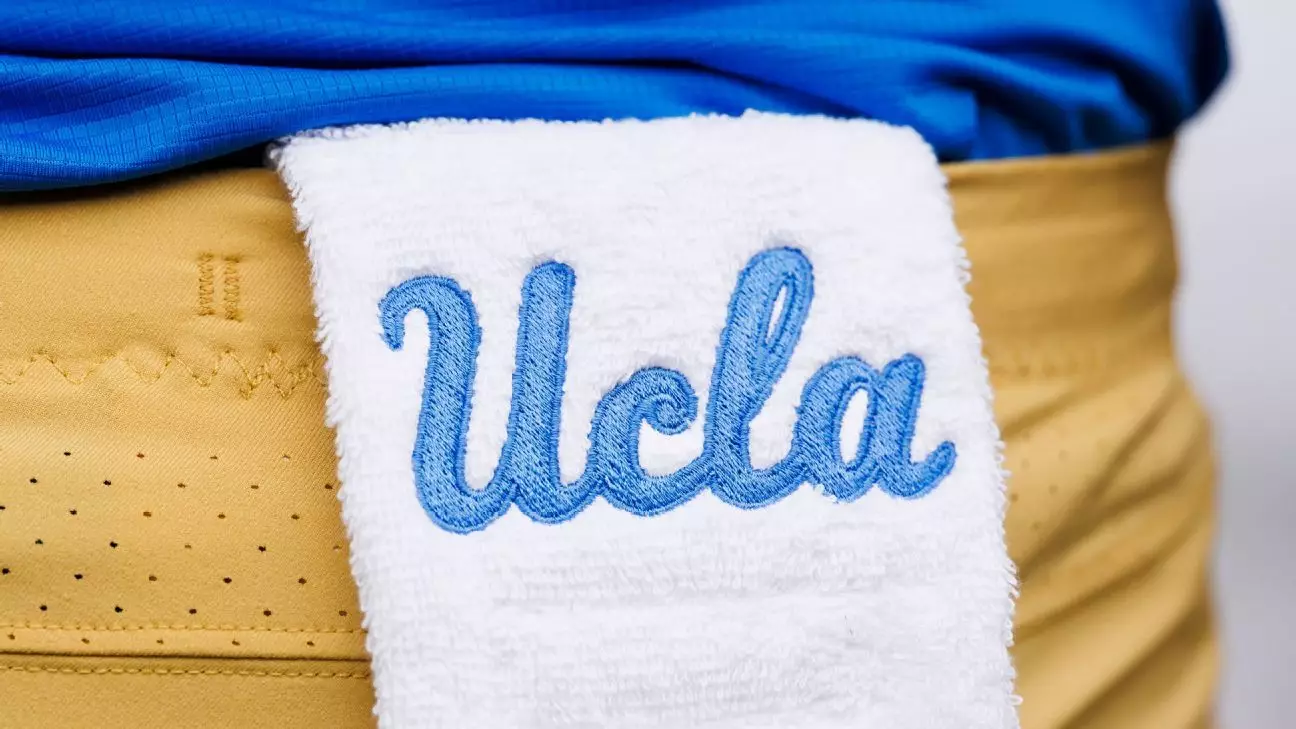In a move that has left college football fans buzzing, Madden Iamaleava has announced his intent to join his older brother, Nico Iamaleava, at UCLA. This decision became public when ESPN’s Chris Low reported on Monday that the young quarterback, who had been navigating through a rocky start at Arkansas, is now entering the NCAA transfer portal. What’s more intriguing is that Maddean’s decision appears to coincide with Nico’s recent commitment to the Bruins, catalyzing a family reunion on the field that fans did not see coming.
The news not only raises eyebrows but also ignites questions about the dynamics of college recruitment and player development within such a mercurial landscape. Having been ranked the 145th overall recruit in the 2025 class, Madden’s initial commitment to UCLA had set high expectations. Yet, his flip to Arkansas during the early signing period last December was portrayed as a significant victory for Razorbacks coach Sam Pittman. The quick turnaround from a hopeful future in Arkansas to a second re-commitment to UCLA highlights the unpredictability and, some might say, the instability of a young athlete’s journey through college football.
The Dual Stakes of Family and Career
The situation exemplifies an essential dilemma faced by many young athletes: the need to balance familial ties with individual objectives. The Iamaleava brothers will not only unite on the field but will also bring their shared aspirations and pressures of living up to their high rankings. Both brothers stepping into UCLA’s program could be seen as undermining the diverse recruitment processes that many colleges strive for, raising concerns about the prevalence of “package deals” in college athletics.
However, there’s a compelling narrative around the Iamaleava family. With Nico recently leaving the Tennessee Volunteers amid a tumultuous environment, the familial bond could serve as an anchor for both players as they navigate the rigors of collegiate sports. This combination of talent and brotherly support has the potential to alter the trajectory of their careers, which is why observers are eager to see how this will unfold in the coming season.
Recruiting Consequences and Market Dynamics
Madden’s decision to transfer also shines a light on the implications for recruitment across collegiate football. His exit from Arkansas marks him as the highest-ranked prospect entering the transfer portal during this spring, posing a significant blow to the Razorbacks’ recruitment strategy. While the allure of a fresh start at UCLA may provide a promising avenue for personal growth and visibility on a prestigious platform, it begs the question: what does this mean for the players who remain in programs like Arkansas—those perhaps not receiving the same familial support or media spotlight?
Moreover, Madden’s previous eligibility issues complicate the narrative. After being declared ineligible during his senior year, his path to this point has not been straightforward. His compelling backstory entwined with his brother’s recent struggles brings to light the intricate challenges that young athletes face. With four years of eligibility remaining, Madden has the opportunity for redemption but also a heavy expectation to deliver.
As college football continues to evolve, Madden Iamaleava’s case stands as an anchor point of discussion around the ethics of transfers, family influence, and the relentless dynamics that shape young athletes’ lives. Their journey isn’t merely about individual careers; it’s a reflection on the sport’s culture, and the ramifications are profound and far-reaching. One can only hope that both Iamaleavas embrace this new chapter with the maturity and focus that their talents merit.

Leave a Reply